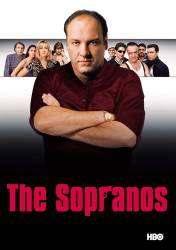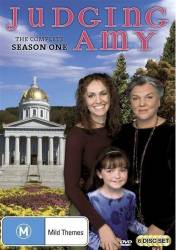
Question: Why does Oliver Gates come up with ridiculous reasons for the people he defends whenever they commit murder? In the episode "Hate", Sean Webster was killing Muslims and Oliver claims that his hatred was genetic but, it was found out that Sean had been raised to hate Muslims after his dad left his mom and married a muslim. In the episode "Game" a guy is murdering people the exact same way that's done in a video game when it's clear the suspect is using the video game as a scapegoat for his crimes.

Question: This is as good a place to ask as any. In various US TV shows (including this one, and this episode), someone says "I could care less", when they always seem to mean "I couldn't care less", ie. they have no interest in what's going on. Surely if they COULD care less that means they actually care a reasonable amount? Is there any logic to this, or is it just a really annoying innate lack of sense?
Chosen answer: A really annoying innate lack of sense. My friends and family say the same thing all the time, and I'm endlessly trying to correct them. I think people just don't know any better and (ironically) couldn't care less that they're speaking incorrectly.
Answer: It's an endlessly annoying dropped negative, and it's been a common colloquialism for far too long. I believe it comes from an original (and now omitted and merely implied) "As if" preceding the statement. "As if I could care less." (Meaning "As if it were possible that I could care even less than I do.") But there's really no way to know.

Question: If Cordelia didn't actually wakes up from the coma how did everyone besides Angel see her? No one said "weird, we talked to and hugged her and all".
Answer: Everybody including Angel saw her. After helping them and then being left alone to talk to Angel, Cordelia says that the Powers That Be let her come back one more time to help them. After Angel gets a call saying that she died, he realises that it was her spirit that was helping them the entire time.

Christopher - S4-E3
Question: How could Bobby be talking to Karen when she had just died in the car accident? he was stuck in traffic talking to her on the phone, and the traffic was caused by her accident, so she would already be dead.
Answer: Bobby Jr. was talking to his son (Bobby III) on the phone, not Karen. Karen couldn't get a hold of Bobby Jr, so she called her son and told him to give his dad a message. For whatever reason, Bobby III waited to call his dad (perhaps he couldn't get a hold of him at first as well). During this time, Karen had her accident and traffic backed up enough for Bobby Jr. to be stuck in it.
Thank you.

Question: What is the name of the theme song of Roswell? I think it's something called "Here I am", or "I am what I am".
Answer: It's called "Here With Me", performed by Dido. It can be found on her album "No Angel".

Question: There was an episode, where the only thing I remember is an autistic woman in court and it had something to do with having sex or having a baby with her autistic boyfriend. Anyone know what this episode is called?
Chosen answer: "Thursday's Child" (season 4, episode 2, October 8th, 2002) : The parents of a sexually active mentally disabled 17-year-old (Lynsey Bartilson) come before Amy to request control of their daughter's reproductive rights. [source : TV Guide on-line.].

Question: How come neither good nor evil want Charity and Miguel to be together? I only started watching this show a year or so ago but I still can't figure out why at least good forces wouldn't want the two to be together.
Answer: I don't know about good not wanting them to be together, but I know the evil side doesn't want them together because once they sleep together, then Charity's powers will multiply, and she will be a driving force against the evil darkside.

Answer: His clients are guilty and won't take a plea. He's using desperate defenses in hopes of swaying a juror or two. Also makes for better television. "Temporary insanity" isn't nearly as compelling as "the video games made me do it."
Brian Katcher